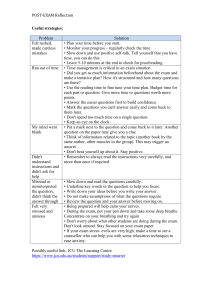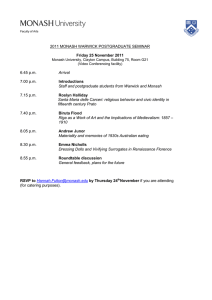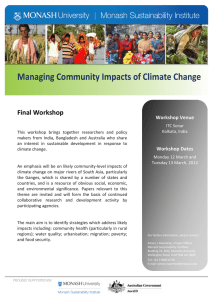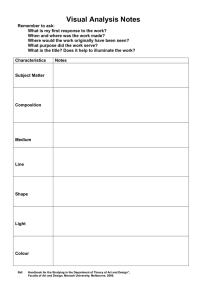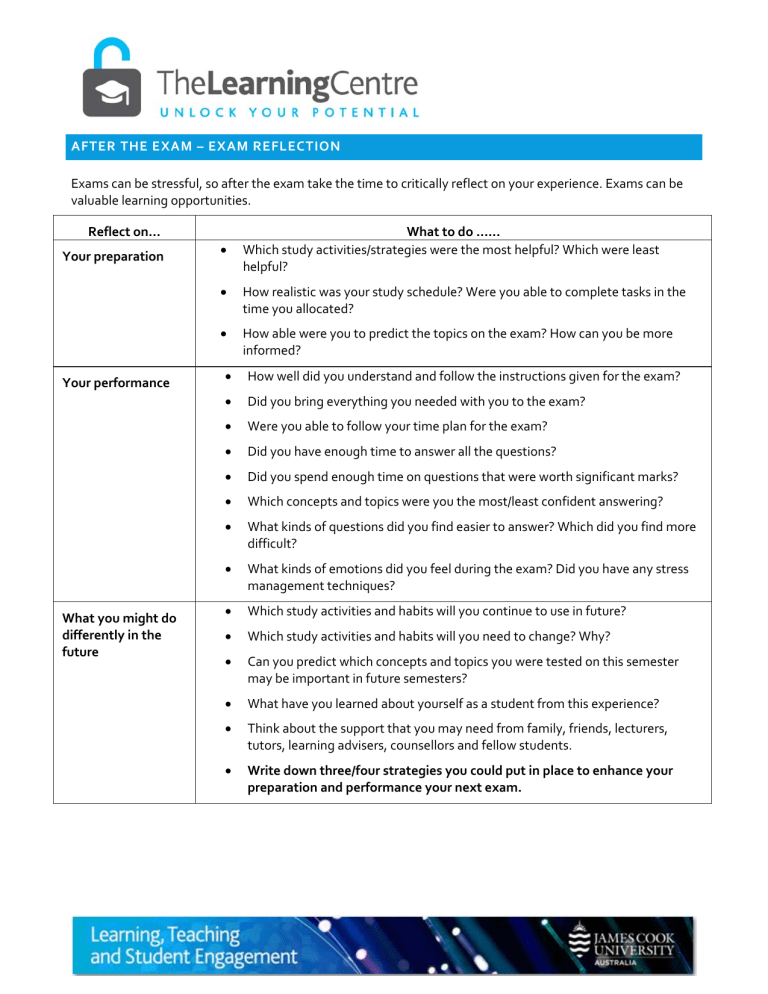
AFTER THE EXAM – EXAM REFLECTION Exams can be stressful, so after the exam take the time to critically reflect on your experience. Exams can be valuable learning opportunities. Reflect on… Your preparation Your performance What you might do differently in the future • What to do …… Which study activities/strategies were the most helpful? Which were least helpful? • How realistic was your study schedule? Were you able to complete tasks in the time you allocated? • How able were you to predict the topics on the exam? How can you be more informed? • How well did you understand and follow the instructions given for the exam? • Did you bring everything you needed with you to the exam? • Were you able to follow your time plan for the exam? • Did you have enough time to answer all the questions? • Did you spend enough time on questions that were worth significant marks? • Which concepts and topics were you the most/least confident answering? • What kinds of questions did you find easier to answer? Which did you find more difficult? • What kinds of emotions did you feel during the exam? Did you have any stress management techniques? • Which study activities and habits will you continue to use in future? • Which study activities and habits will you need to change? Why? • Can you predict which concepts and topics you were tested on this semester may be important in future semesters? • What have you learned about yourself as a student from this experience? • Think about the support that you may need from family, friends, lecturers, tutors, learning advisers, counsellors and fellow students. • Write down three/four strategies you could put in place to enhance your preparation and performance your next exam. Useful strategies: Follow Monash University’s Post Exam Review strategies - Take some time to review any problems you had so you can improve each time http://www.monash.edu.au/counselling/self-help/post-exam-review.html Problem Solution Felt rushed, made careless mistakes • Plan your time before you start. • Monitor your progress – regularly check the time • Slow down and use positive self-talk. Tell yourself that you have time, you can do Ran out of time • Leave 5-10 minutes at the end to check for proofreading. • Time management is critical in an exam situation. • Did you get as much information beforehand about the exam and make a this tentative plan? How it's structured and how many questions are there? • Use perusal time to fine tune your time plan. Budget time for each part or My mind went blank • • • • • • Didn't understand instructions and didn't ask for help • • • question. Give more time to questions worth more points. Answer the easier questions first to build confidence. Mark the questions you can't answer easily and come back to them later. Don't spend too much time on a single question. Keep an eye on the clock. Put a mark next to the question and come back to it later. Another question on the paper may give you a clue Think of information related to the topic (another book by the same author, other muscles in the group). This may trigger an answer Don't beat yourself up about it. Stay positive. Exam room supervisors are there to help. Don't be too embarrassed to ask. If your lecturer or tutor is there at the start of the exam and you are unsure of a question, ask them. You could say it like this: 'I'm not sure how to interpret this question. Does it mean...?' Slow down and read the questions carefully. Underline key words in the question to help you focus. Write down your ideas before you write your answer. Review the question and your answer before moving on. Misread or misinterpreted the question, didn't think the answer through • • • • Felt very stressed and anxious • Being prepared will help calm your nerves. • During the exam, put your pen down and take some deep breaths. Concentrate on your breathing and try again • Don't worry about what other students are doing during the exam. Don't look around. Stay focused on your exam paper • If your exam stress- levels are very high, make a time to see a counsellor who can help you with some relaxation techniques to ease anxiety. Other links: JCU The Learning Centre https://www.jcu.edu.au/students/support/study-smarter Monash University
